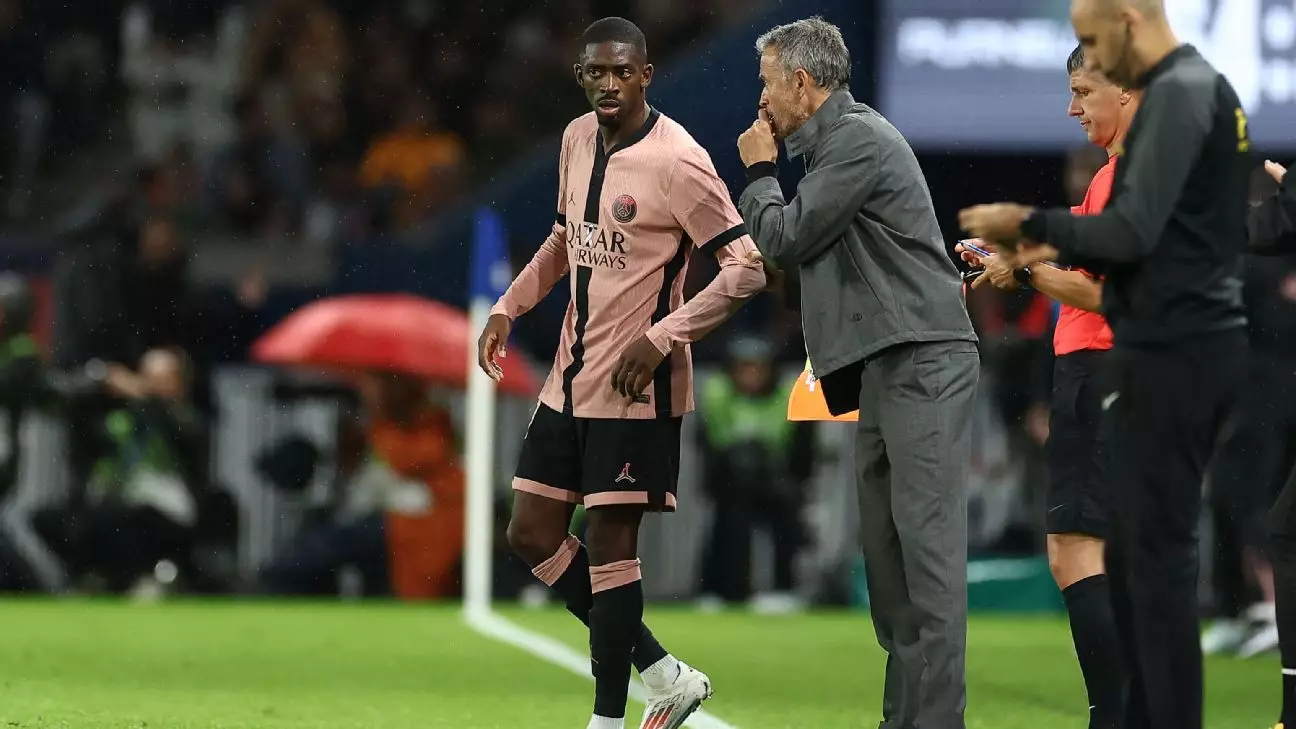In an unexpected turn of events at Paris Saint-Germain (PSG), winger Ousmane Dembélé has been sidelined for the crucial Champions League clash against Arsenal in London. Sources from ESPN have revealed that a dispute between Dembélé and head coach Luis Enrique led to this decision, raising eyebrows about team dynamics and the management’s approach to discipline. The incident unfolded shortly after PSG’s impressive 3-1 victory over Rennes, where Dembélé had showcased his crucial contributions to the team.
During a news conference on the Monday before the pivotal match, Luis Enrique elaborated on his rationale for excluding Dembélé from the squad. He was forthright, stating, “If someone doesn’t meet the requirements of the team, it means, in my opinion, that they are not ready.” His comments underscore the necessity for commitment and readiness, especially when the stakes are high, such as in international competitions. In the context of professional sports, this stance might resonate with fans who value discipline and dedication. However, it also invites scrutiny regarding the handling of players who may be facing personal or professional challenges.
Dembélé’s performance at the onset of this Ligue 1 season has been nothing short of stellar, with four goals and four assists in six matches. This impressive record places PSG at the top of the league, showcasing what Dembélé brings to the table as an asset. The current turmoil thus appears particularly ironic; the player has been instrumental in the club’s successes, yet now finds himself excluded due to disciplinary issues. The contrast between his on-field contributions and off-field controversies compels fans to ponder whether a lack of communication or mutual understanding contributed to the fallout.
This incident may bear broader implications for PSG’s season and Luis Enrique’s coaching philosophy. By prioritizing discipline over immediate talent, Enrique signals a commitment to fostering a culture of team unity and cooperative effort. This approach is not unprecedented, as seen in the previous season when he made the decision to leave out marquee players like Kylian Mbappé for not meeting training expectations. Such decisions demonstrate that Enrique is willing to prioritize the collective over individual brilliance, emphasizing that adhering to the team’s strategic goals is paramount.
As PSG prepares to face Arsenal at the Emirates Stadium, the absence of Dembélé may test the team’s depth and cohesion. Both clubs have experienced contrasting starts to their Champions League campaigns—PSG victoriously secured a win against Girona, whereas Arsenal faced a frustrating draw against Atalanta. The outcome of this clash may significantly influence PSG’s trajectory in the Champions League. Furthermore, how the team rallies without Dembélé could serve as a litmus test for both their resilience and Enrique’s coaching effectiveness amidst the evolving dynamics of the team.
While Dembélé’s talents are evident, the implications of his exclusion reflect deeper issues of commitment and team dynamics that Luis Enrique seems keen to address. As the game against Arsenal approaches, all eyes will be on PSG to see how they navigate this challenge both on and off the field.
